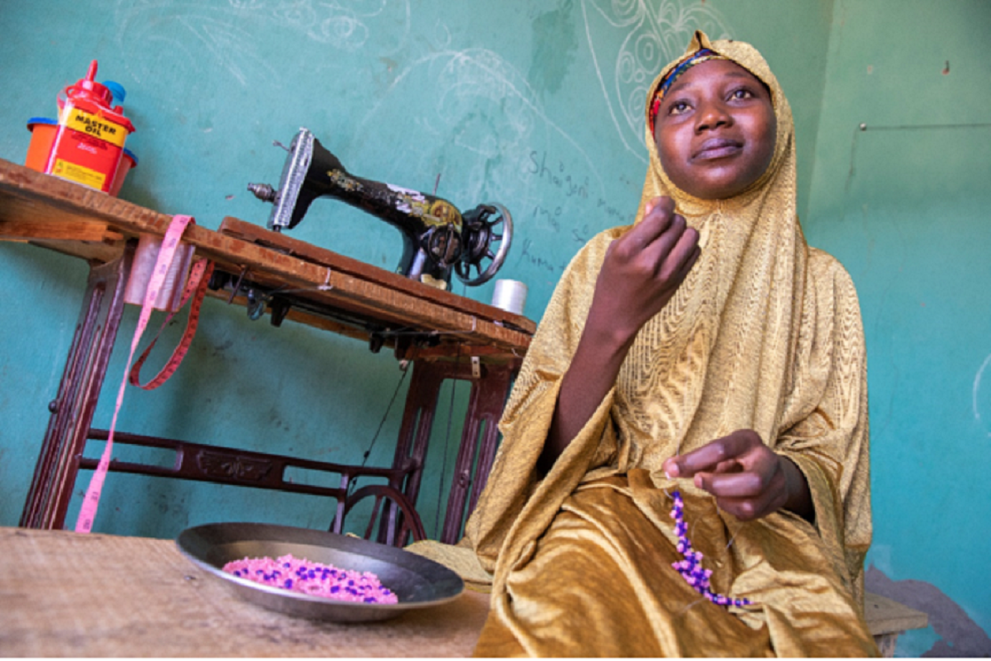
Behind the black, metal doors of small storefront on a busy street in Gombe, Ummaima gently strings pink and blue beads on a long thread, a necklace she is making under the supervision of her instructor, Solonia, the local artisan who owns the jewelry shop. She is quiet — the jewelry a distraction — and almost can’t be heard against the chatter and persistent roaring of motorbikes zooming past outside. But she has bright eyes and a gentle smile, and the gold abaya draped over her glitters against the shop’s teal walls and green floor.
With the hot sun encroaching through the open doorway, Ummaima told us how she participated in a Mercy Corps’ safe space and savings group, as well as vocational training to learn how to make jewelry, where she is when we speak. (The trainings are taught by local workers or artisans, like Solonia.) Ummaima also received a livelihood grant from Mercy Corps. She purchased materials to make her own jewelry, as well as a sewing machine, because she wanted to have diverse sources of income. Ummaima’s father used to sell leather goods, but the market hasn’t picked back up after the Boko Haram crisis, and he’s had trouble supporting them.
With the income Ummaima is now making she is able to contribute to her family, something she says has earned her a lot of respect. She is now considered a breadwinner in her family, which is significant in a place where women are often dependent on men to provide for them.
Details
- Publication date
- 19 July 2019
- Region and Country
- Nigeria
- Thematic
- Strengthening resilience of communities
- Partner
- Mercy Corps
